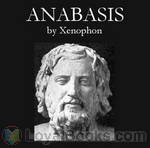|
Books Should Be Free Loyal Books Free Public Domain Audiobooks & eBook Downloads |
|
|
Books Should Be Free Loyal Books Free Public Domain Audiobooks & eBook Downloads |
|
Books on Languages |
|---|
|
Book type:
Sort by:
View by:
|
By: W. M. Flinders Petrie | |
|---|---|
 Egyptian Tales, translated from the Papyri, Series One
Egyptian Tales, translated from the Papyri, Series One
Brief, and in some cases incomplete, stories of magic from ancient Egypt. | |
By: Herbert Spencer (1820-1903) | |
|---|---|
 The Philosophy of Style
The Philosophy of Style
“The Philosophy of Style,” explored a growing trend of formalist approaches to writing. Highly focused on the proper placement and ordering of the parts of an English sentence, [Spencer] created a guide for effective composition. Spencer’s aim was to free prose writing from as much “friction and inertia” as possible, so that the reader would not be slowed by strenuous deliberations concerning the proper context and meaning of a sentence. | |
By: Kabir (1440-1518) | |
|---|---|
 Songs of Kabir
Songs of Kabir
Kabir (1440 - 1518) was a mystic poet and saint of India, whose writings have greatly influenced the Bhakti movement.The name Kabir comes from Arabic Al-Kabir which means 'The Great' - the 37th Name of God in the Qur'an.Kabir was influenced by the prevailing religious mood of his times, such as old Brahmanic Hinduism, Hindu and Buddhist Tantrism, the teachings of Nath yogis and the personal devotionalism of South India mixed with the imageless God of Islam. The influence of these various doctrines is clearly evident in Kabir's verses... | |
By: James Champlin Fernald (1838-1918) | |
|---|---|
 English Synonyms and Antonyms
English Synonyms and Antonyms
English Synonyms and Antonyms is basically a vocabulary builder that students might use as they prepare for entrance or exit exams. Each entry gives a list of synonyms, followed by a paragraph that briefly explains or exemplifies the subtle distinctions between the listed words. The entries sometimes close with a few words on the prepositions that follow selected synonyms, but more often with a list of antonyms.By "synonyms" we usually understand words that coincide or nearly coincide in some part of their meaning, and may hence within certain limits be used interchangeably, while outside of those limits they may differ very greatly in meaning and use... | |
By: Samuel Johnson | |
|---|---|
 Plan and Preface to a Dictionary of English
Plan and Preface to a Dictionary of English
The published dictionary was a huge book: with pages nearly 1½ feet tall and 20 inches wide, it contained 42,773 words; it also sold for the huge price of £4/10s. ($400?). It would be years before “Johnson’s Dictionary”, as it came to be known, would ever turn a profit; authors’ royalities being unknown at that time, Johnson, once his contract to deliver the book was fulfilled, received no further monies connected to the book. Johnson, once again a freelance writer, albeit now a famous one, faced a grim hand-to-mouth existence; however, in July 1762 the twenty-four year old King George III granted Johnson an annual pension of £300... | |
 A Grammar of the English Tongue
A Grammar of the English Tongue
| |
 Preface to a Dictionary of the English Language
Preface to a Dictionary of the English Language
| |
By: Oliver Optic (1822-1897) | |
|---|---|
 A Spelling-Book for Advanced Classes
A Spelling-Book for Advanced Classes
| |
By: Helen Fryer | |
|---|---|
 The Esperanto Teacher
The Esperanto Teacher
The international language Esperanto was first released to the world in 1887, when L. L. Zamenhof published his first book, “Dr. Esperanto’s International Language”. Since that time, many learning books have been developed to help the beginner attain a proficiency in the language. Helen Fryer’s “Esperanto Teacher” is one of the earliest of these attempts in English. Divided into 45 short and easy lessons and supplemented with sections on joining words, exclamations, compound words, arrangement... | |
By: Desiderius Erasmus (1469-1536) | |
|---|---|
 In Praise of Folly Illustrated with Many Curious Cuts
In Praise of Folly Illustrated with Many Curious Cuts
| |
 Selections from Erasmus Principally from his Epistles
Selections from Erasmus Principally from his Epistles
| |
By: Phaedrus (c. 15 BC - c. AD 50) | |
|---|---|
 The Fables of Phaedrus
The Fables of Phaedrus
The fable is a small narrative, in prose or verse, which has as its main characteristic the aim of conveying a moral lesson (the “moral”), implicitly or, more normally, explicitly expressed. Even though the modern concept of fable is that it should have animals or inanimated objects as characters – an idea supported by the works of famous fabulists such as Aesop and La Fontaine – Phaedrus, the most important Latin fabulist, is innovative in his writing. Although many of his fables do depict animals or objects assuming speech, he also has many short stories about men, writing narratives that seem to the modern eye more like short tales than fables... | |
By: Xenophon | |
|---|---|
 Xenophon's Anabasis
Xenophon's Anabasis
Xenophon the Athenian was born 431 B.C. He was a pupil of Socrates. He marched with the Spartans, and was exiled from Athens. Sparta gave him land and property in Scillus, where he lived for many years before having to move once more, to settle in Corinth. He died in 354 B.C. “Anabasis” is a Greek work which meane “journey from the coast to the center of a country.” This is Xenophon’s account of his march to Persia with a troop of Greek mercenaries to aid Cyrus, who enlisted Greek help to try and take the throne from his brother Artaxerxes, and the ensuing return of the Greeks, in which Xenophon played a leading role... | |
By: Lafcadio Hearn (1850-1904) | |
|---|---|
 Kwaidan: Stories and Studies of Strange Things
Kwaidan: Stories and Studies of Strange Things
Most of the following Kwaidan, or Weird Tales, have been taken from old Japanese books,— such as the Yaso-Kidan, Bukkyo-Hyakkwa-Zensho, Kokon-Chomonshu, Tama-Sudare, and Hyaku-Monogatari. Some of the stories may have had a Chinese origin: the very remarkable "Dream of Akinosuke," for example, is certainly from a Chinese source. But the story-teller, in every case, has so recolored and reshaped his borrowing as to naturalize it… One queer tale, "Yuki-Onna," was told me by a farmer of Chofu, Nishitama-gori, in Musashi province, as a legend of his native village... | |
By: Anton Chekhov (1860-1904) | |
|---|---|
 Swan Song
Swan Song
In 'The Swan Song' an aging actor reminisces about his life and the parts he's played. The piece takes a tragic look at ambition and the sacrifices that must be made in order to succeed. Chekhov’s ability to capture and explore human nature and experience is showcased here. | |
 The Wife, and other stories
The Wife, and other stories
| |
 The Witch and other stories
The Witch and other stories
| |
 The Schoolmistress, and other stories
The Schoolmistress, and other stories
| |
 House With The Mezzanine And Other Stories
House With The Mezzanine And Other Stories
Six short stories and a novella by the Russian master. (david wales) | |
 Ivanov
Ivanov
Nicolai (anglicised Nicholas in this translation) Ivanov, a middle-aged public servant, is unhappy. His wife Anna, disinherited by her family after converting from Judaism, is dying of tuberculosis. He is deeply in debt. And his best friend’s daughter is infatuated with him. Comedy and tragedy ensue in truly Chekhovian fashion. An example of the young Chekhov’s maturing style, Ivanov is an early harbinger of themes that would recur throughout his work. | |
 Schoolmaster and Other Stories
Schoolmaster and Other Stories
Anton Chekhov, perhaps better known as a world famous classical playwright for works such as "Uncle Vanya" and "The Cherry Orchard" was also a prolific short story writer. "The Schoolmaster and Other Stories" is one of several of his collections. It's a compilation of 30 short stories. Some bizarre, some comical but all very interesting. | |
 The Slanderer 1901
The Slanderer 1901
| |
By: Benjamin L. (Benjamin Leonard) D'Ooge (1860-1940) | |
|---|---|
 Latin for Beginners
Latin for Beginners
| |
By: Titus Lucretius Carus (94? BC - 49? BC) | |
|---|---|
 On the Nature of Things
On the Nature of Things
Written in the first century b.C., On the Nature of Things (in Latin, "De Rerum Natura") is a poem in six books that aims at explaining the Epicurean philosophy to the Roman audience. Among digressions about the importance of philosophy in men's life and praises of Epicurus, Lucretius created a solid treatise on the atomic theory, the falseness of religion and many kinds of natural phenomena. With no harm to his philosophical scope, the author composed a didactic poem of epic flavor, of which the imagery and style are highly praised. | |
By: Shaykh Hasan | |
|---|---|
 Persian Self-Taught (in Roman Characters) with English Phonetic Pronunciation
Persian Self-Taught (in Roman Characters) with English Phonetic Pronunciation
This volume is primarily intended to supply a working and practical knowledge of the Persian language, for the benefit of those who have not the time or the inclination to master the grammar, and yet require to use the spoken tongue for purposes of business or pleasure. With this object in view it supplies many vocabularies of words carefully selected to suit the needs of those holding communication with Persia and the Persians, classified according to subject, and a large number of colloquial phrases... | |
By: Euripides (480-406 BC) | |
|---|---|
 The Trojan Women
The Trojan Women
Euripides' play follows the fates of the women of Troy after their city has been sacked, their husbands killed, and as their remaining families are about to be taken away as slaves. However, it begins first with the gods Athena and Poseidon discussing ways to punish the Greek armies because they condoned Ajax the Lesser for dragging Cassandra away from Athena's temple. What follows shows how much the Trojan women have suffered as their grief is compounded when the Greeks dole out additional deaths and divide their shares of women. | |